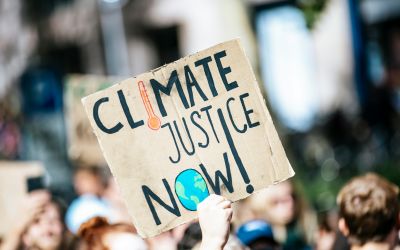US White House hopefuls woo Gore in focus on climate
Democratic White House hopefuls Hillary Clinton and Barack Obama speak often about green jobs, emissions cuts and renewable energy. But they have more than global warming on their minds when they talk of environmental policy.
Democratic White House hopefuls Hillary Clinton and Barack Obama speak often about green jobs, emissions cuts and renewable energy. But they have more than global warming on their minds when they talk of environmental policy.
The long-term goal may be saving the planet, but the short-term one is winning the backing of former Vice President Al Gore.
Gore, who won a Nobel prize for his work to combat rising temperatures, is also a superdelegate, one of the influential Democratic Party leaders likely to determine whether Obama, an Illinois senator, or Clinton, a New York senator, wins the party's presidential nomination.
So the dueling candidates praise Gore during campaign stops, offer up the prospect of roles for him in future administrations, and -- most of all -- they stay in touch.
"They both call. And I appreciate that fact," Gore said on the CBS television program "60 Minutes" last week.
Obama, the Democratic front-runner, says he keeps in regular contact with Gore and has pledged to make him a major player on global warming in an Obama administration.
"I will make a commitment that Al Gore will be at the table and play a central part in us figuring out how we solve this problem," Obama said.
Clinton told reporters she did not know whether Gore wanted to get back into government but was sure the American people would welcome it.
"I am very dependent upon the work that Al Gore has done for so many years on behalf of climate change," she said.
Gore's spokeswoman, Kalee Kreider, declined to comment on the Obama offer and was complimentary about the presidential candidates, including Republican Sen. John McCain of Arizona.
"Former Vice President Gore thinks that both candidates are very strong. Both of them have offered plans to address the climate crisis ... as has Senator McCain," she said.
"It's a real turnaround to have candidates on both sides of the aisle offering, you know, solutions and plans to the climate crisis."
REAL CHANGE
Gore, who narrowly lost the 2000 election to George W. Bush, has dedicated most of his professional life since then to fighting climate change. Although he may not be eager to get back into the political fray, he has an agenda: to put fighting global warming on the top of the next president's to-do list.
That shouldn't be too hard. All three candidates have made climate proposals that go far beyond Bush's policies, including a cap on industrial carbon dioxide pollution and an emissions trading system similar to the European Union's.
"The most important role that Vice President Gore plays for all candidates is to raise the bar very high on what needs to be done to solve this critical problem," said Gene Karpinski, president of the League of Conservation Voters.
Keeping the issue prominent on the campaign trail will give the next U.S. president a mandate to put new policies into place, he said.
The candidates discuss the issue regularly at rallies and town hall meetings, where lines about global warming often draw applause, especially from Democratic audiences.
Environmentalists say a new president, armed with the right policies and a cooperative Congress, could make Washington an influential leader in talks to form an international climate treaty to succeed the Kyoto Protocol, which goes through 2012 and which the United States has not ratified.
But for any new U.S. policies to succeed, American citizens will have to be engaged, a problem Gore aimed to address with a newly launched $300 million climate campaign.
Obama talks about the need for an attitude adjustment among Americans and boasts of a trip he made to Detroit, where he admonished car makers to make more fuel efficient vehicles.
Clinton says she would promote "green-collar" employment to replace lost manufacturing jobs around the country.
McCain says even if global warming is not real, working to stop it will have beneficial effects.
The talk has attracted the attention of environmentalists and policy makers around the world who see a chance for a significant shift in U.S. climate policy starting in 2009.
"Everybody in Europe is watching the election very closely," said Mahi Sideridou of the environmental group Greenpeace in Brussels. "No matter which party wins ... we're pretty sure that we're going to see a huge shift in policy making in climate change."
(Additional reporting by Caren Bohan and Ellen Wulfhorst, editing by Chris Wilson)
Source: Reuters






